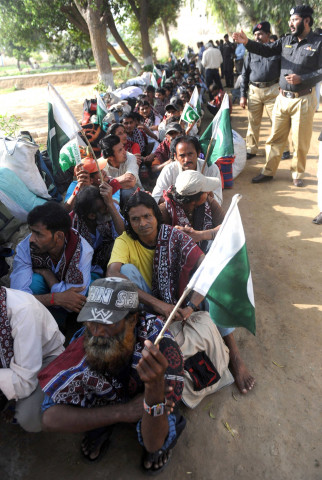Compassion for prisoners
The prisoners, both India and Pakistan need to remember, are not pawns in their great game.

Compassion for prisoners
It is always troubling when the case of one person is seen as a microcosm of relations between the two countries. But prisoners have always been used as bargaining chips in talks between Pakistan and India. Whenever there is a thaw, prisoners are exchanged and even lists of prisoners being held in each country are exchanged. Undoubtedly, just because Pakistan holds an Indian prisoner or vice versa does not automatically make that prisoner not guilty of whatever crime he has been accused of. But the sad fact is that the majority of prisoners being held by both countries are fishermen whose only crime was to cross the maritime border, most likely without knowing that they had done so. In such cases, the prisoners should be released within a matter of days, not held for years.
Each case should be decided on humanitarian and legal, not political, grounds. Both countries also need to respect international law and provide all prisoners from the other country with immediate consular access. These prisoners, both countries need to remember, are not pawns in their great game, used to gain points when needed and otherwise forgotten when convenient. The release of the crippled Dr Chisti would demonstrate India’s commitment to basic standards of humanity. If he is indeed released, then Pakistan, too, needs to make a similar gesture. Even such small beginnings show the two countries can live at peace with each other.
Published in The Express Tribune, June 27th, 2011.














COMMENTS
Comments are moderated and generally will be posted if they are on-topic and not abusive.
For more information, please see our Comments FAQ